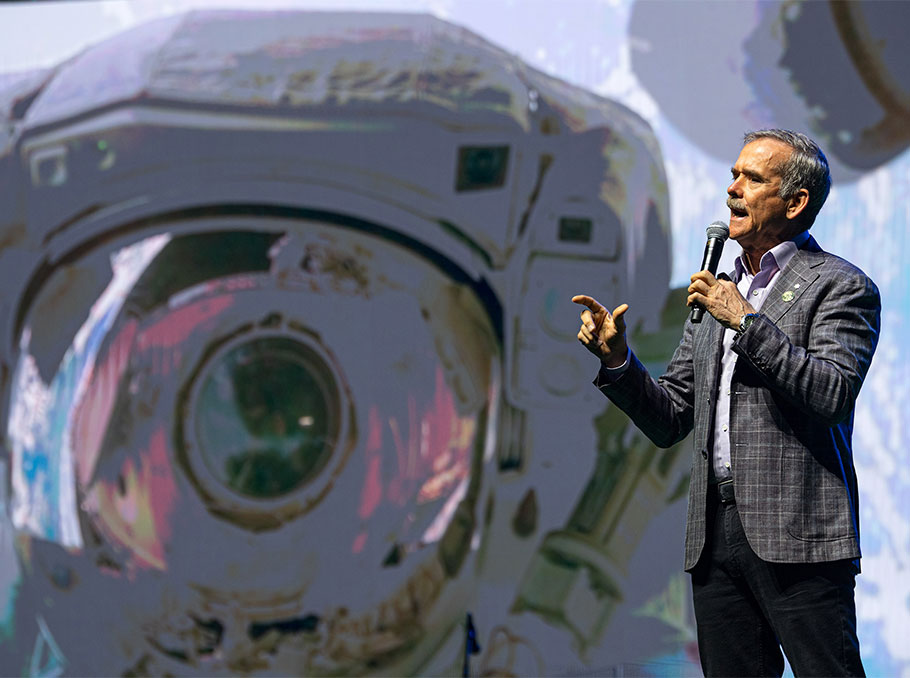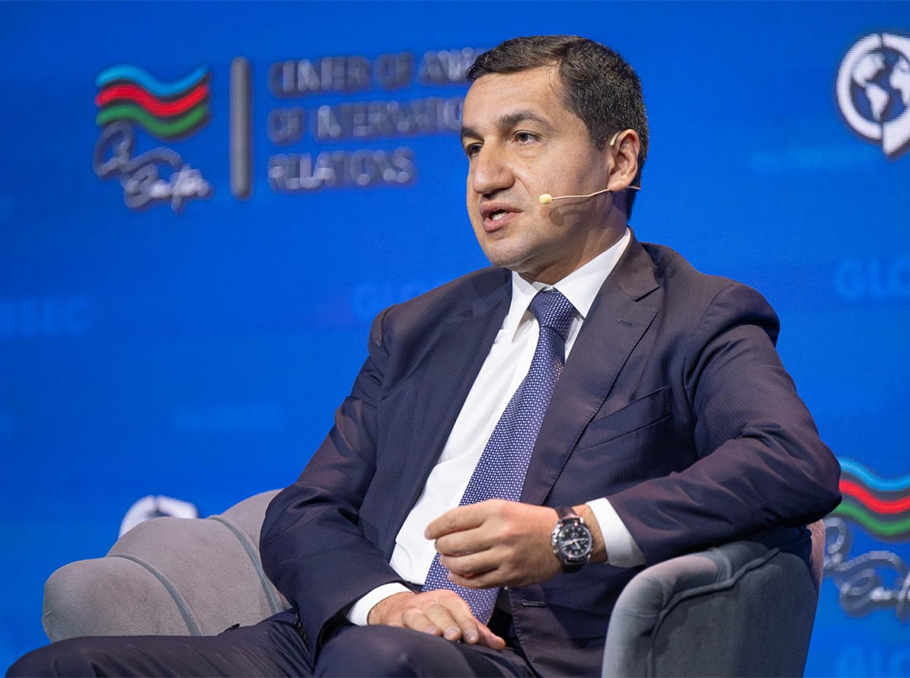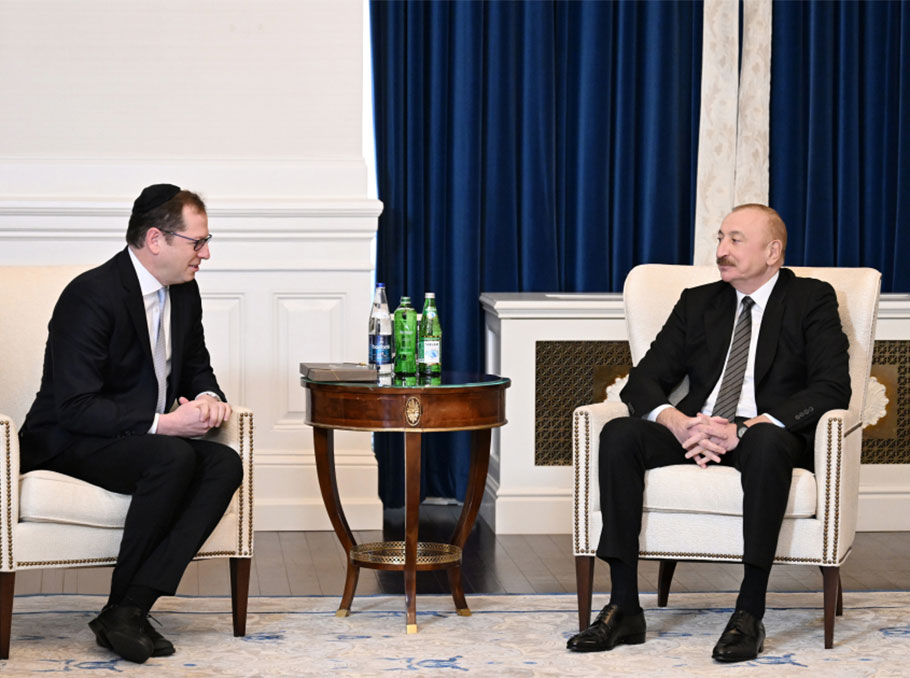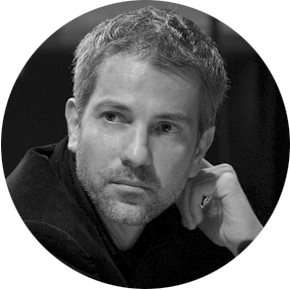Chris Hadfield is astronaut, former commander of International Space Station. He serves as a director and advisor to multiple tech companies including SpaceX and Virgin Galactic, and co-founded the Space Stream at the Creative Destruction Lab tech incubator. He is assisting King Charles III with space business practices for the Sustainable Markets Initiative, is an adjunct professor at the University of Waterloo, and chairs the board of the Open Lunar Foundation.
Formerly NASA’s Director of Operations in Russia, Hadfield spent more than three decades serving with the military, NASA and the Canadian Space Agency. He was a fighter/test pilot and flew three space missions.
Hadfield is the author of five internationally bestselling books: two non-fiction, An Astronaut’s Guide to Life on Earth and You Are Here; a children’s book, The Darkest Dark; and two fiction books, The Defector and The Apollo Murders.
Mediamax spoke to Chris Hadfield during the Starmus Earth festival in Bratislava.
Charles Duke presented NASA’ Artemis project here at Starmus - after some 50 years people are planning to get back to the Moon. I know your story - when you were 9 years old you saw Neil Armstrong walking on the Moon and it became an inspiration for you. Charles Duke said Artemis is important not only for rediscovering the Moon, but as he put it ‘to go the Moon and beyond.’
It is clear when you fit it into history. About 80,000 years ago, no one had ever left Africa, none of our species, we all lived in Africa. And then some people decided that they were going across the Red Sea and start going somewhere else. I do not know why. Maybe it was because there was climate change. And there was a famine. And some people had to leave. Or maybe it was an improvement in technology.
70,000 years ago when you got to Australia, you needed technology because you had to sail. So we needed boats. And we did not get to New Zealand until 800 years ago, because our ships were not good enough to sail the Tasman Sea. And we did not get to Antarctica until maybe 120 years ago, because our ships were not good enough. We did not get into space until 60 years ago, we did not get to the Moon until 50 years ago because our spaceships were not good enough. But each of those was an exploration. And it took a long time after we had initially sent some explorers there.
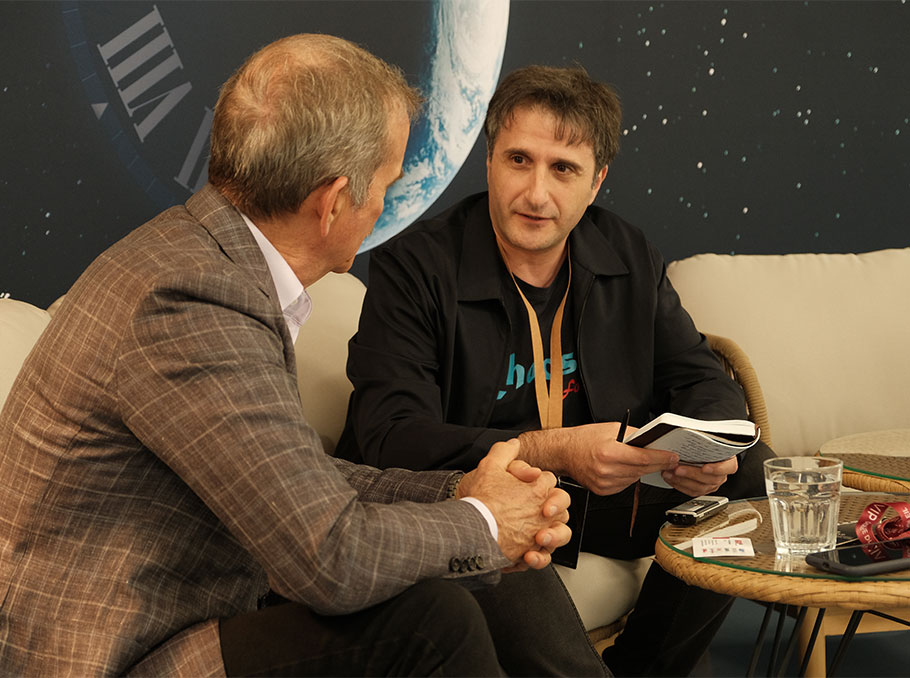 Ara Tadevosyan talks to Chris Hadfield
Ara Tadevosyan talks to Chris Hadfield Photo: Starmus
Giovanni Caboto, an Italian explorer from the late 1400s, wanted to explore the new world. But he was beat by someone in 1492. He could not get funding in Italy, he could not get funding in Spain and Portugal. So he went to England, changed his name to John Cabot and convinced the British King to give him funding. And in 1496, he sailed from England. And it was a disaster, his ship broke and limp back into port. And then finally in 1497, he got enough money and he sailed the North Atlantic and discovered some new land, he called it Newfoundland. And so Newfoundland belongs to the Brits. But it took them almost 100 years for when they knew that all this territory was theirs, and claimed in their name, because they had problems at home, it took almost 100 years to go from exploration, to starting to settle to take advantage of what you have explored and discovered.
And that is what’s happening in space right now. The very first flight was in 1961. It was very dangerous. We sent a few explorers as far as the Moon, we knew we could do it just barely. And now it is sort of like that same pattern that now we can get to the Moon, much cheaper, and hopefully much safer. And so therefore, it is time in history that we can reasonably start to settle on the Moon. And we are just at that moment right now of transitioning for exploration to settle. And the same thing will happen with Mars. But we are not even 1492 with Mars. Mars is hard to get to. And there is no real important reason, you do not want to kill everybody. We did not sail to Antarctica in 1400, because everybody would have died every time. You need to have a reasonable chance of getting unless there is something super important to go. And now that the Moon is only three days away and we know, it is bigger than Africa. And it has mineral resources that are valuable on the Earth. So it is a good time to start making that part of the Earth-Moon economic system. And it will not be purely Artemis and will not be purely the Chinese and it will not be purely SpaceX. It is a big project and work, but that’s what’s happening right now.
You went to space three times – in 1995, in 2001 and in 2012. I assume there were differences and similarities in each flight. But the question is the following: these flights took place in conditions of different developments ongoing on Earth. When you go to space and something is happening here, not necessarily bad, does it influence on how you feel and work there?
There are 8 billion people on Earth, and they are all doing different things. And most of them are living good, productive, similar lives, trying to do their job, trying to make a nice world for themselves and their children. That’s what almost everybody is doing. There are some bad people, there are some magnificent people, there are criminals, there are crazy people. It has always been that way. It is a mix. But how much does it affect you? Like, something that happened in Indonesia today? How much does it affect you? Zero, right? Even though there is a huge population in Indonesia. But you have got your own concerns. And when you are on board a spaceship, you see everybody in every day, and you see all the places where politics are flaring up right now. And it is the worst of human behavior. We kill each other, just because we invent reasons to, not because we need to, we kill each other, because we make decisions of jealousy and fear. Sometimes, if you are raised with hatred, it is really hard to get past it. And onboard a spaceship you see it in context, like if you open a newspaper right now, it is going to be the shooting of the Slovakian Prime Minister, it is going to be what happened in the Middle East today, it might be what happened in Ukraine. But as we go on, so long, it has become normal, as awful as that sounds. Unless you are in Armenia, you will not read about Armenia, because it is not news for the rest of the world, right? Onboard a spaceship, you see it all, over and over and over again. So it does not forgive the horrible behaviors at all, but at least it puts it in context. It is only a peripheral concern for a crew onboard a spaceship, which are exploring the universe and trying to be forward thinking and being good examples. And I can’t think of a better example of human behavior than the International Space Station since the year 2000 - 15 nations 24 hours a day, seven days a week working together peacefully for a common purpose. Every single day. Despite all the politics.
I was going to ask you about that. It is weird that the space today is probably the only place where Russia and the United States cooperate. Almost all cooperation on the Earth is frozen.
Russians did it on purpose, they did it themselves, they were pretty sure that their petrochemical reserves were valuable enough that they could make the gamble to be a pariah and get away with it. And to some degree, they have succeeded. But that does not mean everybody in Russia is bad. In the 80s, I was a combat fighter pilot in a standoff with the Soviet Union. And in the 90s, after the geopolitics shifted, we were friends, and I helped build their space station. And now the pendulum sort of swung back because of horrific leadership. And you can let yourself go crazy with that, or you can just accept. This is human behavior, and we need to find ways as a species to constantly try and civilize the worst of our behaviors. But it’s never going to be perfect. That does not mean we should give up on the good things.
Do you think that Cold War is back? You were part of that war - I have read that you were the first Canadian pilot that intercepted Soviet heavy bomber Tu-94. You knew what the Cold War was.
It is not the same. The Cold War actually was a period of quiet and peace for the world. Because there were two superpowers that nobody else could threaten. So it is like if you are in a bar, and two great big bullies are fighting each other, everybody else in the bar is like, ‘Hey, I am not gonna fight, those two giants are fighting each other. I am just gonna have my beer and sit over here.’ And that’s sort of what the Cold War was like. But now, China – ascendant, India – ascendant, Saudi and Muslim world are changing politics the way that flares up, and the United States, still is the world’s most dominant power, but it is not that dominant balance between two. So it is more like guerrilla warfare than a Cold War.
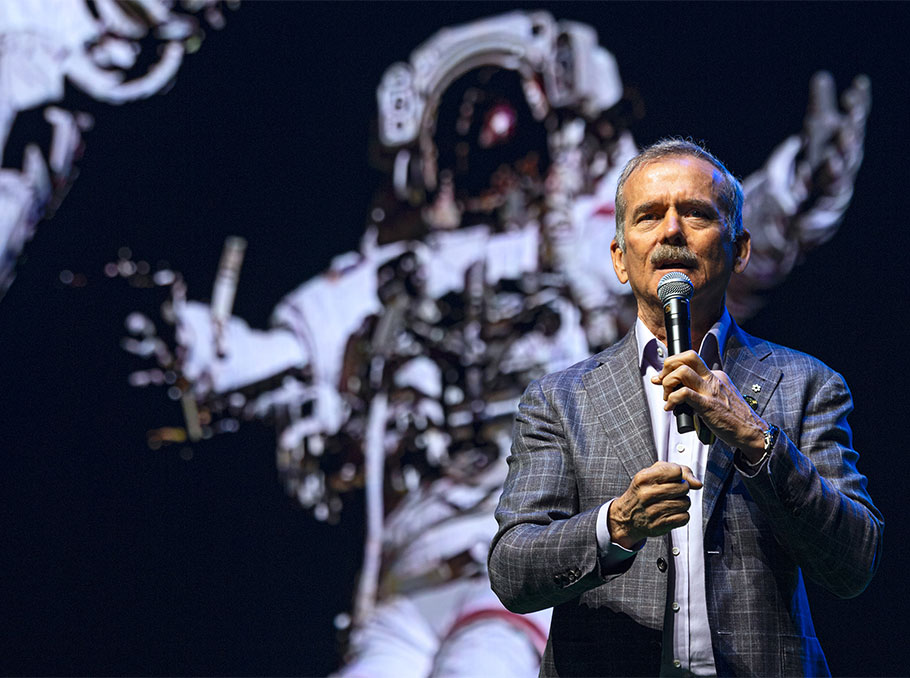 Chris Hadfield
Chris Hadfield Photo: Max Alexander/Starmus
Most people live in peace, but there are always people battling over scarce resources and fear, and hatreds they were taught as children, and sometimes we can get past them, and sometimes we cannot. And I hate it. I am very regretful of it. I wish we did not have to be that way. And constantly looking for ways to be part of the better human behavior now. But I sure do not have all the answers.
Let’s talk about AI. Do you think that it is possible to find the right balance between risks and opportunities? Or the theories about the possible “rise of machines” someday will come true?
Let us look at examples from the past. Imagine what it was like for the first Homo Erectus family when someone came in with a piece of wood on fire and said, “this is good”. Because up until then fire had just killed people, blowing through uncontrolled but somebody figured out how to tame fire and it changed everything because suddenly you could stay warm in the winter, live further north, cook your food so that you could get more nutrition out of it. It was an enormous improvement of the quality of human life, but an incredibly dangerous new thing. Or when we invented metallurgy, so we can make sharp edges. It is really important, but all useful technology is dual purpose, good and bad. And nuclear power - horrifically destructive, but useful at the same time. And so each one of those, the technology got ahead of regulation. But people collectively found a way to struggle along for a while until our regulation started catching up with the technology. Will our regulation be able to keep up with artificial intelligence? Just based on past performance, I think the answer is “yes”, we absolutely need artificial intelligence. And the reason is that our population is leveling off because we are having less babies. So who is going to do the work? If 200 years ago, women had 12 children, and half of them died before they were adults, but they did not have an education system. So you could start working in a mine at eight years old. And children were laborers on the farm. But in a better enlightened world not everybody should be doing dumb labor. That so we need smart robots.
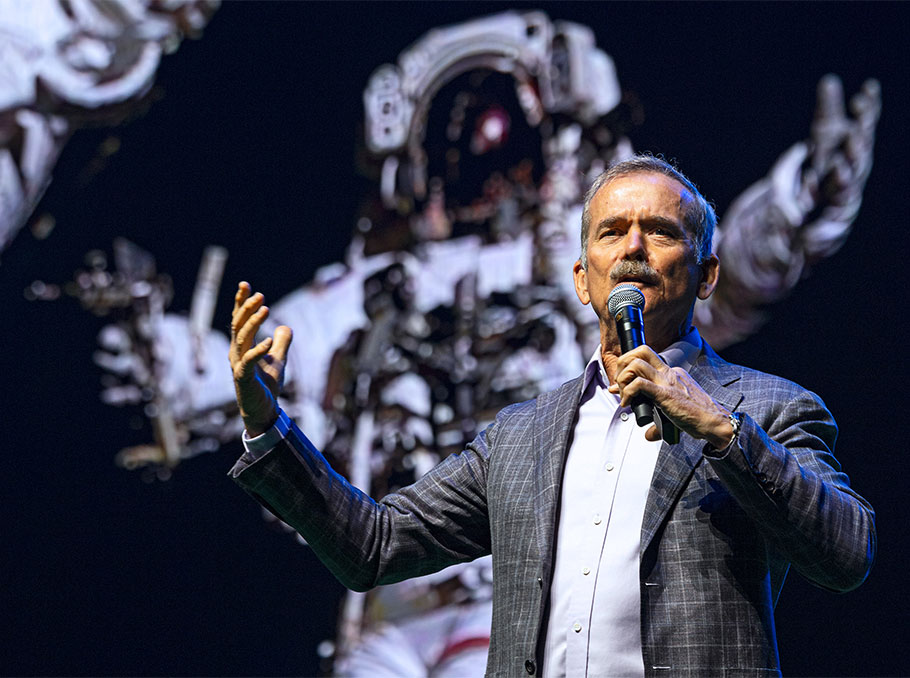 Chris Hadfield
Chris Hadfield Photo: Max Alexander/Starmus
If we want a good quality of life for 10 billion people, we need just like we invented steam engines to do the heavy labor. And we went from purely muscle labor to machine labor a mix of animal and human but most of the machine labor. Like you did not ride a horse here today, you could have, you could have walked here, but you probably had a machine bring here. But we need those machines to get better. And robots are stupid, they need better intelligence. But it all is within our capability to have smart and tactile robots. And that is absolutely necessary. And that is why so many companies and leading tech people are working on both AI and on the robotic side of things.
And after AI I want to ask you about human relations. After the Challenger catastrophe in 1985, you were about to give up your dream of becoming an astronaut. And it was your wife who supported and encouraged you to move forward. I think this is something that we really lack today. Because of all these technologies, social media, we often do not speak to our loved ones, as people sometimes prefer to find advice on social media and do not talk to each other.
We need to figure out how to regulate social media. It is out of control right now and it does mess up relationships. But there is nothing new about that. There was never a time in history where everything was perfect. When was this time when everybody communicated nicely and took care of each other? It is only a television existence, it’s not real.
It is hard to accept when you become an adult and realize there are still no rules. My children have said to me, ‘I thought when I got to be 30, that there was like, rules, and that this all will make sense. And it is still just as screwed up and confusing as when I was 15. And now I am supposed to be in charge of some stuff”. And every generation goes through that realization, that even though you are 50, and you look like you are grown up, you are still just a little kid, and you still do not have it all figured out.
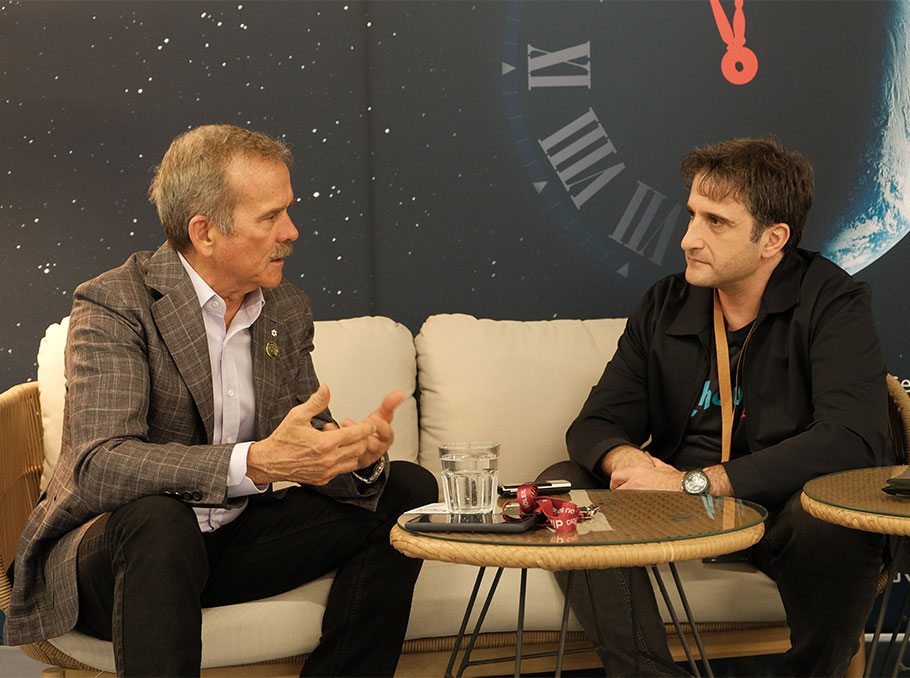 Ara Tadevosyan talks to Chris Hadfield
Ara Tadevosyan talks to Chris Hadfield Photo: Starmus
It is very important to have good role models and and social media encourages bad role models. And when I was a kid, you could not get a dirty movie. You had to know a guy to get a dirty movie. Now on my phone, you can’t avoid dirty movies, it is just there. So, it is not different, maybe just access is changed. But we need to have good role models. And there are lots of them.
Look at the good people. And when you have accomplished things, as an adult, recognize that it is part of your responsibility, in a given society, to be a role model. And so when people get to high levels of public office, and still are terrible role models, it is very disruptive to your society.
My wife and I have very imperfect relationship just like everybody, but we have been together for almost 50 years. And we very much have supported each other. You try and free up your partner in life to do the things that are important to them, even if they are not important to you. Because it is important to them. And everybody needs that if you can possibly manage it. But if you wait for things to be perfect, you are going to wait forever. And if you shift the blame from yourself to someone else, then you are part of the problem. And both of those things are hard for people to accept. They do not want to change, and they do not want to be responsible for the bad stuff. So it is very important to make people want a better future, to make people want behave better, to make people be excited about something that inspires them and thrills them and challenges them, gets them away from the low side of life. And that is the way that I have tried to conduct my life, be inspired by the good things.
Ara Tadevosyan spoke to Chris Hadfield









